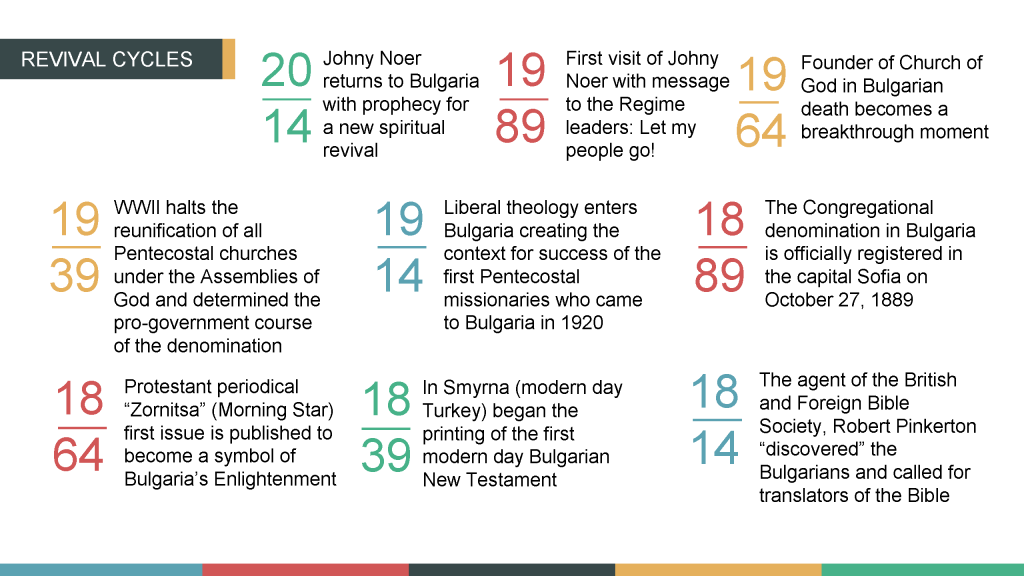25 Year Revival Cycles in Bulgaria’s Protestant History
2014 Pastor Johny Noer visits Bulgaria with a prophecy for a new spiritual revival in the land
1989 First visit of Pastor Johny Noer in Bulgaria. The Berlin Wall fell seven months later
1964 Pastor Stoyan Tinchev of the Bulgarian Church of God passed away. This was a breakthrough moment for the ministry of the denomination, which will occupy a historical place in the Bulgarian Pentecostal movement in the next half of century
1939 In the years before WWII, Dr. Nikolas Nikoloff returned to Bulgaria in a renewed attempt to unite all Pentecostal churches in the country. Future Pentecostal Union’s president Ivan Zarev is ordained to the ministry, which determined the pro-government course the denomination would take under the Communist Regime
1914 The beginning of the Great War stopped access of American missionaries to Bulgaria and opened the doors for liberal theology to enter traditional protestant churches. This factor alone allowed the success of the first Pentecostal missionaries sent to Bulgaria by the Assemblies of God in 1920.
1889 After the bylaws of the Congregational church are accepted in the city of Pazardjik in 1888, the Congregational denomination is registered in the capital Sofia on October 27, 1889. Interestingly, exactly a century later again in the capital Sofia on October 27, 1989, the communist militia uses force to stop Green Party protestors which marks the beginning of the fall of communism in Bulgaria.
1864 The monthly protestant periodical “Zornitsa” (Morning Star) is first published to become not only the most successful protestant publication in Bulgaria, but also a symbol of Bulgaria’s Enlightenment. At the same time, ABFMC agent Charles Mors began a Bible Study in Sofia from which the first evangelical church in the capital will emerged in 1879.
1839 In Smyrna (modern day Turkey) began the printing of the first modern day Bulgarian New Testament
1814 The agent of the British and Foreign Bible Society, Robert Pinkerton “discovered” the Bulgarians within the border of the Ottoman Empire and immediately calls for translators who can translate the Bible in the local vernacular. The year marks the beginning of Protestantism in Bulgaria.
Read Also:









Comments